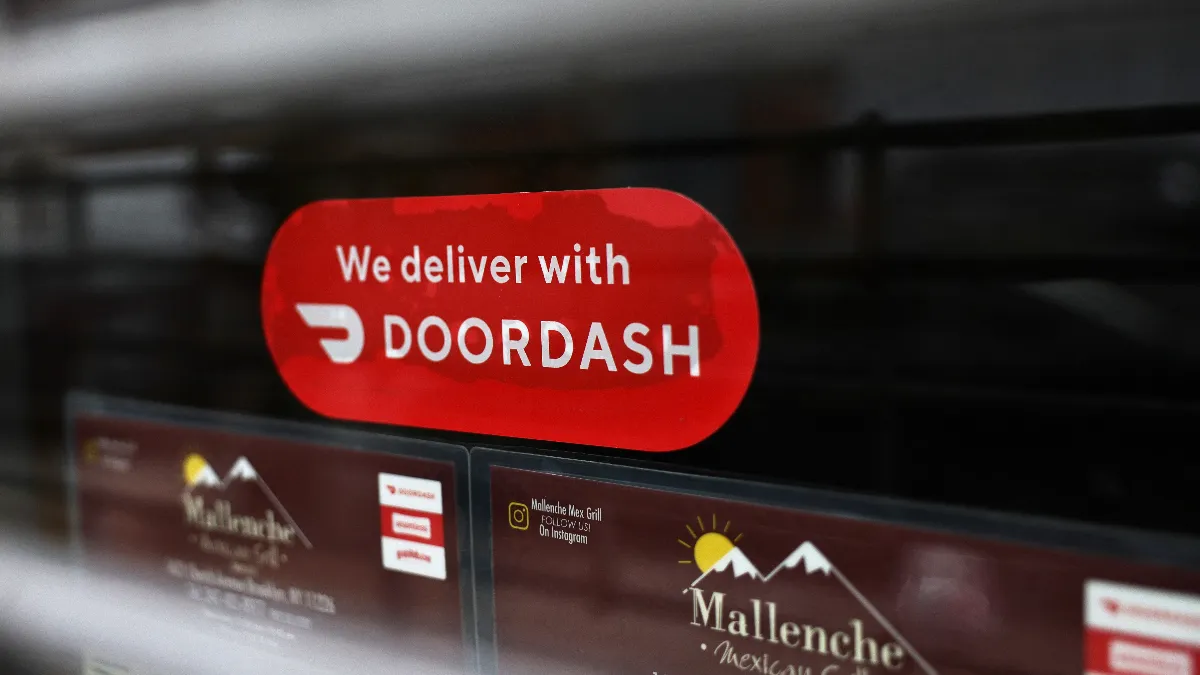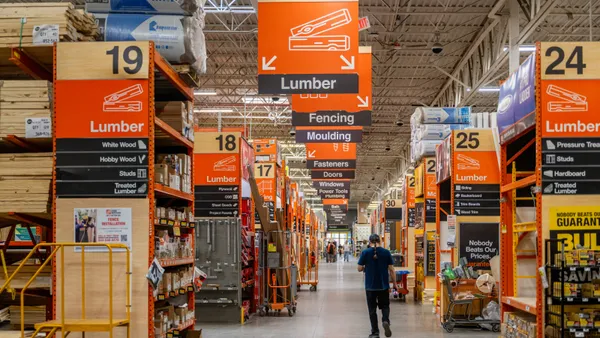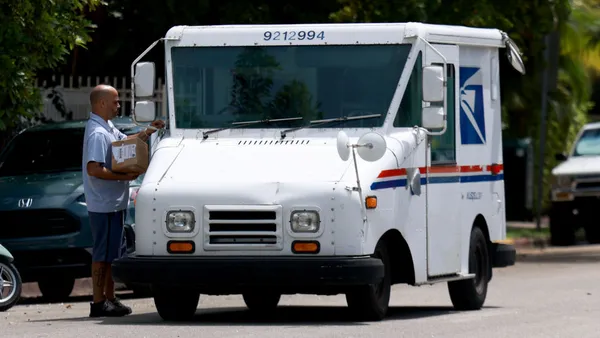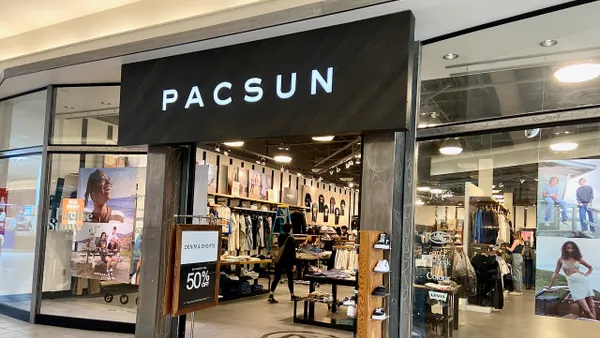Dive Brief:
- Albertsons announced Monday it will offer delivery from nearly 2,000 stores in as little as an hour through DoorDash's marketplace app. DoorDash will offer delivery of more than 40,000 products from Albertsons, with no minimum order size required.
- Albertsons will also use DoorDash Drive, the delivery firm's white label e-commerce platform, to power online shopping in select markets.
- The tie-up continues Albertsons push into third-party marketplaces as it pulls back on operating its own delivery fleets in certain areas.
Dive Insight:
Albertsons' delivery alliance with DoorDash is part of the grocers' ongoing journey to strike a profitable balance between third-party apps and its own delivery assets.
Earlier this year, news emerged that Albertsons would discontinue using its own delivery fleets in markets like Southern California and Texas, and instead rely on popular companies like DoorDash and Instacart for last-mile fulfillment. Albertsons was early among major chains to build out its own delivery fleet at banners like Safeway — seemingly offering an advantage for the grocer as online orders swelled during the pandemic. Kroger, its close national competitor, launched its own delivery fleet this year, which is now making deliveries in Florida and Ohio.
But operating refrigerated trucks and staffing its own drivers is also very expensive, and Albertsons has decided in these select areas to bet on outsourcing and the prospect of enticing the millions of customers currently using third-party apps.
Albertsons is now DoorDash's largest grocery partner. The firm, which launched grocery delivery last year, delivers from grocers like Hy-Vee, Meijer and Farmstead. It also operates its own online convenience chain, DashMart, which operates in 18 cities.
After a fiscal year in which it recorded a 258% increase in digital sales, Albertsons is positioning itself for sustained long-term growth as rivals like Amazon, Walmart and Kroger also expand. The grocer offers pickup service from more than 1,400 locations and plans to integrate more automated micro-fulfillment centers to process online orders in population-dense markets.
















